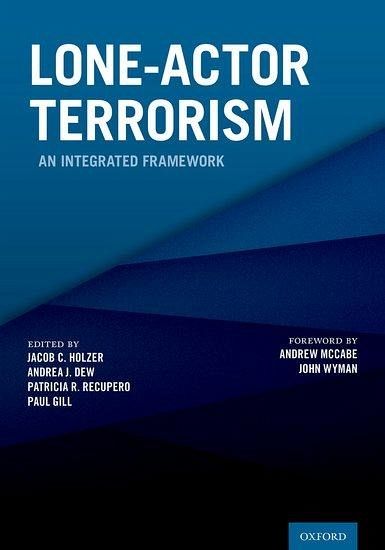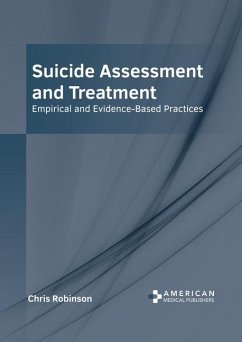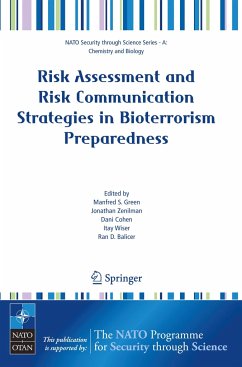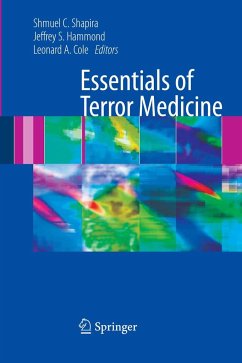Gebundenes Buch
Lone-Actor Terrorism
An Integrated Framework
Herausgeber: Holzer, Jacob C; Gill, Paul; Recupero, Patricia R; Dew, Andrea J
Versandkostenfrei!
Versandfertig in über 4 Wochen
Weitere Ausgaben:

PAYBACK Punkte
61 °P sammeln!




Drawing on insights across clinical and forensic mental heath as well as related fields in sociology and security, this edited volume provides a diverse yet authoritative overview for those interested in better understanding the threats of lone-actor terrorism and its professional response.
Jacob C. Holzer, MD, LFAPA, is an Attending in Clinical and Forensic Psychiatry at McLean Hospital. Following service in the U.S. Air Force, he completed medical school and a medicine internship at Tufts University, psychiatry residency at Yale University, and fellowships in clinical neuroscience research at Yale and neuropsychiatry/behavioral neurology at Beth Israel Hospital/Harvard University. Since completing his training, he has provided direct clinical care in neuropsychiatry, psychopharmacology, and geriatric psychiatry, in addition to consultation in forensic psychiatry and legal medicine. Dr. Holzer has consulted in public and private sectors with attorneys, courts, businesses, and government agencies. His professional and academic focus has involved several areas of forensic psychiatry and risk management, including presentations at numerous academic and military sites and consultation in forensic mental health aspects of defense and national security. Andrea J. Dew, PhD, MALD, is Associate Professor of Strategy and Policy at the US Naval War College. She founded and directed the Centre on Irregular Warfare and Armed Groups at the US Naval War College, and is the inaugural Chair of Maritime Irregular Warfare. A graduate of Southampton University (UK), Dr. Dew's fellowships include Senior Counter-Terrorism Fellow for the Jebsen Center on Counter-Terrorism and Fellow for the Belfer Center at Harvard University. She has earned an MALD and PhD from The Fletcher School of Law and Diplomacy in Boston. Patricia R. Recupero, JD, MD, is a Clinical Professor at the Warren Alpert Medical School of Brown University in the Department of Psychiatry and Human Behavior based at Butler Hospital, Providence, RI. Dr. Recupero is President and CEO of Butler Hospital. She obtained her law degree at the Boston College Law School and her medical school training at Brown University. She obtained her psychiatry training at Brown University. She is board cert ified by the ABPN in Psychiatry, Addictions Psychiatry, and Forensic Psychiatry. She is the former President of the American Academy of Psychiatry and the Law and the National Association of Psychiatric Health Systems. Dr. Recupero serves of the Council of Psychiatry and Law of the American Psychiatry Association. She is the author of over 43 scientific publications and book chapters. Paul Gill, PhD, is Professor of Security and Crime Science at University College London. He has over 80 publications on the topic of terrorist behaviour including publications in leading psychology, criminology, political science and general science journals. He has conducted research funded by the Office for Naval Research, the Department of Homeland Security, Dstl, the European Union, the National Institute of Justice, CREST and MINERVA. A primary part of his role is to translate academic research into practice. He has also provided dozens of briefings, lectures and trainings to high-level counter-terrorism practitioners in the U.K. and abroad in the area of violent extremist risk assessment and management. Andrew McCabe is the former Deputy Director of the Federal Bureau of Investigation. He is also a faculty member of the Schar School of Policy and Government at George Mason University. John Wyman is a retired Special Agent for the Federal Bureau of Investigation. During his 23-year career, Mr. Wyman leveraged partnerships and interagency collaboration to mitigate threats and disrupt attacks. Most recently, Mr. Wyman served as Chief of the FBI's Behavioral Threat Assessment Center (BTAC), a multiagency, multidisciplinary task force focused on terrorism and targeted violence prevention. The BTAC uniquely leverages synergies of operational experience, training, and research to address personally aggrieved and ideologically motivated offenders. Mr. Wyman is currently employed as a senior security manager for a multinational fortune 500 corporation. He continues to collaborate with other subject matter experts to meet complex challenges related to terrorism, active assailants, workplace violence, insider threats, stalking, and harassment.
Produktdetails
- Verlag: Oxford University Press
- Seitenzahl: 424
- Erscheinungstermin: 20. Mai 2022
- Englisch
- Abmessung: 260mm x 187mm x 27mm
- Gewicht: 880g
- ISBN-13: 9780190929794
- ISBN-10: 0190929790
- Artikelnr.: 64052780
Herstellerkennzeichnung
Libri GmbH
Europaallee 1
36244 Bad Hersfeld
gpsr@libri.de
Für dieses Produkt wurde noch keine Bewertung abgegeben. Wir würden uns sehr freuen, wenn du die erste Bewertung schreibst!
Eine Bewertung schreiben
Eine Bewertung schreiben
Andere Kunden interessierten sich für













